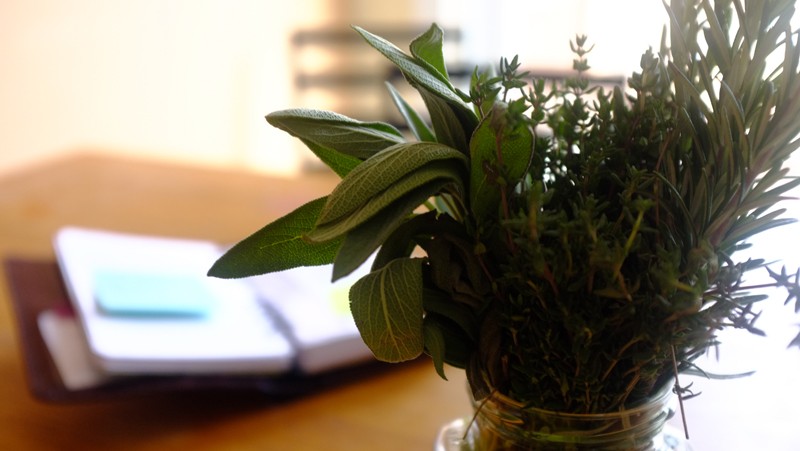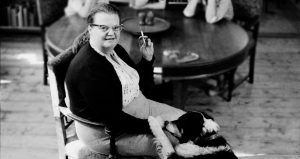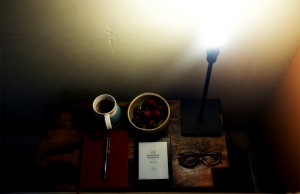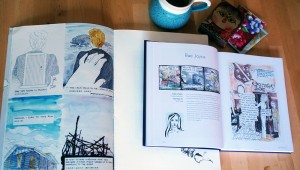 During this winter vacation I read Virginia Woolf’s “A Room of One’s Own,” a book that has been on my reading list since forever. Big round of applause for this minuscule achievement! Right. Thanks. Moving on.
During this winter vacation I read Virginia Woolf’s “A Room of One’s Own,” a book that has been on my reading list since forever. Big round of applause for this minuscule achievement! Right. Thanks. Moving on.
I knew I would enjoy the book, but it exceeded my expectations. I agreed with everything Virginia Woolf says to such extent most of the time I felt I could have written this exact same book myself. Of course, it would not have been this book, but one much worse that nobody would have read, so good that things turned out as they did in the end.
There were just a few of her ideas that I that I feel very strongly against.
For example, while I couldn’t agree more than one of the reasons why women were not able to rise to any prominence in the arts was because they had to care of house and children, and had no time of their own, I don’t know if I agree that the ones who managed to write, wrote fiction, of all genres, because it was easier.
This is what Virginia Woolf says in “A Room of One’s Own”:
If a woman wrote, [speaking of the woman of the nineteenth century middle class] she would have to write in the common sitting-room. And, as Miss Nightingale was so vehemently to complain — ”women never have an half hour . . . that they can call their own”— she was always interrupted. Still it would be easier to write prose and fiction there than to write poetry or a play. . . . Therefore, when the middle-class Woman took to writing, she naturally wrote novels, even though, as seems evident enough, two of the four famous women here named were not by nature novelists. Emily Brontë should have written poetic plays; the overflow of George Eliot’s capacious mind should have spread itself when the creative impulse was spent upon history or biography. They wrote novels, however.
I find very interesting this idea that poetry would require less interruption and more concentration than a novel. I can’t speak about history, biography or “poetic plays,” since I don’t have any experience writing those genres, but I assume they are all difficult and requiring a space bigger (physically and mentally) than a common sitting room. But poetry? Was Virginia Woolf thinking of epic poems or something like that? Because poetry is a short, concentrated form that can be written and edited in short bursts of time and creativity, with the greatest chance of surviving undamaged by frequent interruptions.
I find writing novels a much more complex and gargantuan intellectual task for which interruptions are much more damaging. The writer needs to keep in mind at all times a big number of characters, developments, themes, and needs to maintain an order and structure that can take everything off tracks if one loses their train of thought for a few minutes. What am I not seeing here?
Another idea that Virginia Woolf presents in “A Room of One’s Own” is that Jane Austen wrote better than Charlotte Bronte (despite the fact that Charlotte Bronte had more genius) because Jane Austen didn’t write out of anger.
This is what she says about Jane Austen:
Here was a woman about the year 18oo writing without hate, without bitterness, without fear, without protest, without preaching. That was how Shakespeare wrote, I thought, looking at Antony and Cleopatra;
And this is what Virginia Woolf says of Charlotte Bronte and her Jane Eyre:
One might say, I continued, laying the book [Jane Eyre] down beside Pride and Prejudice, that the woman who wrote those pages had more genius in her than Jane Austen; but if one reads them over and marks that jerk in them, that indignation, one sees that she will never get her genius expressed whole and entire. Her books will be deformed and twisted. She will write in a rage where she should write calmly. She will write foolishly where she should write wisely. She will write of herself where she should write of her characters. She is at war with her lot. How could she help but die young, cramped and thwarted?
I have to say that throughout the book Virginia Woolf says it over and over again that women should write like women, not like men. However, I feel that here she is defending masculine writing to the detriment of the writing that comes natural to women. She argues against passion and sentimentality, which are characteristic of the way women often think and live their lives. I don’t think that Jane Eyre loses any of its power because of its enraged author. On the contrary, that’s what makes it such a powerful piece of literature.
Of course, I am biased. I’ve loved Jane Eyre with a passion since the age of twelve, and nothing will dissuade me from worshipping it and its author forever and ever, amen.
It doesn’t feel right to disagree with Virginia Woolf. Feels a bit like a betrayal. But I do tell myself that it is fine to have disagreements and differences of opinion, because literature and genius and feminism are nuanced, complex, subjective matters that cannot be accurately painted in just black and white. And debates are always healthy and only advance an issue, rather than suffocate it. Right? Right. Unless, of course, due to the inherent interruptions of womanhood, they don’t coagulate and instead degenerate into something meaningless. Like this derailed train of a blog post. Sorry. Still braindeadly sleep deprived over here. But soon, soon, I’ll get back on course. Because, you know, I am the happy owner of a basement workspace. No more sitting-room writing for me. Soon.



